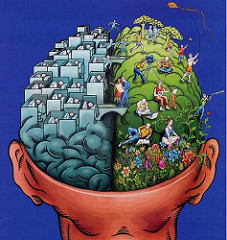Alcohol Addiction: Is It Innate or a Learned Condition?
Whether alcohol addiction is innate or a learned condition, it is stigmatized as affecting only "bad" people (The Stigma of Addiction). In reality, substance abuse and alcohol addiction is pervasive, affecting people of all ages, races, genders, and socioeconomic stature. How is this possible? Some believe the condition of alcohol addiction exists from birth whereas others disagree, feeling that it is developed over time. Personally, I know that I was an alcoholic long before I ever took my first drink (take the Alcoholism Test). I know where I fall in the big debate over alcohol addiction as an innate vs. a learned condition.
Claiming to have alcohol addiction before ever drinking alcohol really confuses people. I'm often asked how I could possibly know this for certain (What Is Alcoholism? Alcoholism Definition). My statement is based on both the self-awareness I gained in sobriety and careful reflection of my previous behaviors. I noticed that many of the behaviors which fed my alcohol addiction have been present in my life since I was 10 years old.
Alcohol Addiction Is Innate -- It Is in My Nature

As a young girl, I sought an escape from the trauma of being bullied at school every day. One particular evening, I tried to drink vodka straight because I knew it would make me feel better. Unprepared for the bitter taste, I spat it out.
Then I had an epiphany: mix the vodka with orange juice. Keep in mind, I had never seen a drink mixed before so I really didn't know what adults did with vodka. My epiphany was based on an intuitive thought, and that is one reason I believe I was an alcoholic before ever taking a drink.
Identifying Addictive Behaviors and Unhealthy Needs
Another factor which contributes to my alcoholism is the emotional release I sought from my substance of choice. Alcohol was a tool to avoid feeling emotions, to separate myself from other people, and it gave me a false sense of security. When alcohol was initially taken away from me, I felt vulnerable and weak (Alcohol Withdrawal: Symptoms and Duration of Alcohol Withdrawal). The same was true in Junior High and High School where I used perfectionism and over achievement to create a sense of safety.
Even though I was not using alcohol yet, I was looking for something outside of myself to make me feel better on the inside.
Among the contributing factors to developing an alcohol addiction are: family history of addiction, drinking habits, and mental health. While I am not sure if I was necessarily born with alcohol addiction innately, I still feel confident that it began before I was introduced to alcohol. I suspect that there is a different answer to this question for everyone who identifies as an alcoholic.
Image courtesy of Flickr user TZA.
You can find Becky on Facebook, Twitter, Google+ and her website.
APA Reference
Doyle, B.
(2015, December 3). Alcohol Addiction: Is It Innate or a Learned Condition?, HealthyPlace. Retrieved
on 2026, January 26 from https://www.healthyplace.com/blogs/debunkingaddiction/2015/12/alcohol-addiction-is-it-an-innate-or-learned-condition